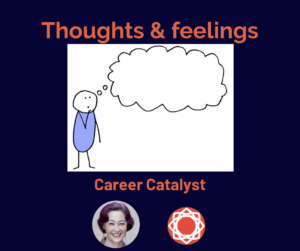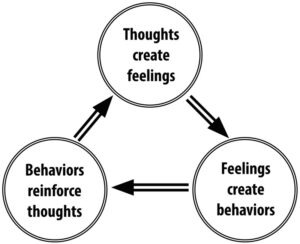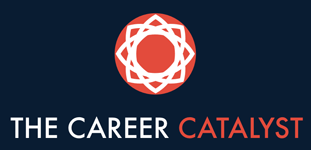
The job-search can be a challenging process, and can lead to some pretty big emotions.
Cognitive behavioral therapists talk about the cognitive triangle:

Your thoughts, which can include things like, “I’ll never get this job” or, “I’m a failure,” lead you to feel things like self-doubt and anxiety. Then, hearing that feedback and feeling those feelings, your actions are impacted—you procrastinate or you don’t focus on what you’re doing and make a silly mistake. The mistake then makes you think, “Aha! I knew I would mess up,” and the cycle fuels itself.
But the good news is that this chain is a relatively easy one to break. It starts with you noticing the contents of your thoughts, and then disrupting or questioning those thoughts. For instance, if you’re thinking about applying for an interesting-sounding job and you find yourself thinking, “I can’t possibly do that job,” notice the thought. It’s not a fact, it’s an opinion that one part of your brain has offered you. Once you see that, you can offer your brain different thoughts: “What if I could do that?” “I have done other difficult things before. I might be able to learn that.” “I didn’t think I could do my previous job but I actually learned it quickly.”
These more positive thoughts will then charge you up, and when you’re up, energized, happy, you can edit your resume for the position and apply. This holds true for interviews and salary negotiation conversations, as well.
Now, it’s not going to be a clean and linear journey. You will still get thrown off by your thoughts. And sometimes those thoughts are correct. For instance, I can’t perform surgery or fly an airplane because I have no training. However, if I really wanted that training, I could probably get it. The real question is how the thoughts make you feel. If a thought makes you feel crummy and de-motivated, question it! And see if you can’t come up with a way to re-write it so it serves you better.



